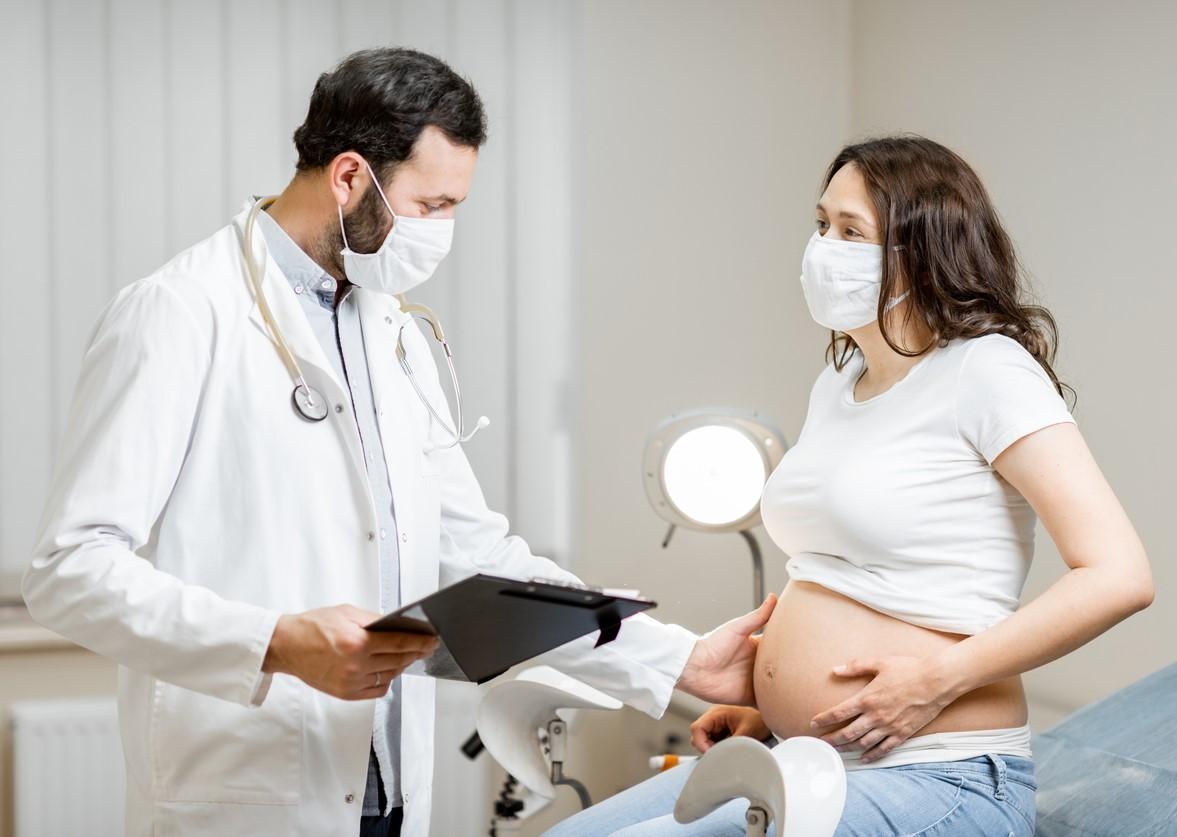Pregnant women in Washington state were infected with COVID-19 at a 70% higher rate than others of similar ages, with nonwhite women shouldering a disproportionate burden, according to a study published yesterday in the American Journal of Obstetrics & Gynecology.
Noting that population-based estimates of coronavirus infections in pregnancy are unreliable due to incomplete recording of pregnancy status or inclusion of only hospitalized patients, a team led by researchers from the University of Washington in Seattle analyzed data from 240 pregnant COVID-19 patients at 35 healthcare systems, capturing 61% of the state's annual births, from Mar 1 to Jun 30, 2020.
They estimated that women who delivered 13.9 of every 1,000 newborns had COVID-19, compared with 7.3 of 1,000 state residents aged 20 to 39 years (rate ratio [RR], 1.7). After excluding 45 coronavirus cases detected through asymptomatic screening, the infection rate in pregnant women fell to 11.3 per 1,000 cases (RR, 1.3).
Prioritizing pregnant patients for vaccine
Women of most nonwhite ethnicities had rates of COVID-19 infection two to four times higher than the expected racial and ethnic distribution of pregnant women in Washington in 2018, with the greatest disparities found among Hispanic, American Indian/Alaska Native, and Native Hawaiian/Pacific Islander women. Likewise, the proportion of pregnant women preferring to receive care in a non-English language was 30.4%, versus the 7.6% estimated to have limited English proficiency in the state. Most women in the study (70.7%) were from minority racial and ethnic groups.
"Pregnant women were not protected from COVID-19 in the early months of the pandemic with the greatest burden of infections occurring in nearly all racial/ethnic minority groups," the authors wrote. "This data coupled with a broader recognition that pregnancy is a risk factor for severe illness and maternal mortality strongly suggests that pregnant people should be broadly prioritized for COVID-19 vaccine allocation in the U.S. similar to some states."
Specifically, study co-author Kristina Adams Waldorf, MD, said in a University of Washington press release that vaccination plans vary widely by state, "and pregnant women are written out of the allocation prioritization in about half of U.S. States. Many states are not even linking their COVID-19 vaccine allocation plans with the high-risk medical conditions listed by the [Centers for Disease Control and Prevention] —which include pregnancy."
Targeted public health messaging by risk
The authors said that the 70% higher rate in pregnant women cannot be entirely explained by universal screening at delivery but may be due in part to exposures from children in daycare, their role as a caregiver within an extended family, residence in larger households, or other factors.
"Higher infection rates in pregnant patients may be due to the overrepresentation of women in many professions and industries considered essential during the COVID-19 pandemic — including healthcare, education, service sectors," lead author Erica Lokken, PhD, said in the release.
The researchers called for targeted public health messaging.
"Understanding the geographical, racial/ethnic and language distribution of SARS-CoV-2 infections among pregnant patients would enable targeting the public health response to pregnant women at greatest risk for SARS-CoV-2 infection and associated adverse maternal-fetal outcomes," they concluded.





















